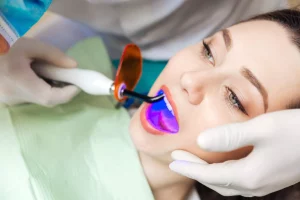Last Updated on: 5th December 2024, 08:28 am
What are eating disorders?
Eating disorders are behavioral conditions characterized by severe and persistent alterations in eating behaviors that negatively affect the physical and mental health of the persons afflicted. In addition to having a negative impact on quality of life, eating disorders also control self-image, relationships with family and friends, and performance at school or work.

Most eating disorders are associated with an obsessive preoccupation with weight, body shape, food, or anxiety to eat, leading to dangerous eating behaviors, which are driven similar to an addiction. These behaviors can significantly affect the body’s ability to obtain proper nutrition. Eating disorders can damage the heart, digestive system, bones, teeth, and mouth while leading to other illnesses.
Treatment for these disorders must be addressed psychologically, behaviorally, nutritionally, and medically.
Types of eating disorders
1. Anorexia

2. Bulimia

3. Binge eating disorder
Binge eating disorder is a type of eating disorder that involves recurrent episodes of eating large amounts of food in a short period of time, often in secret and without the ability to control the eating behavior. People with binge eating disorder may feel ashamed or guilty after a binge episode, but do not engage in purging behaviors.

Physical symptoms of binge eating disorder can include obesity, high blood pressure, and diabetes, as well as emotional issues such as low self-esteem and depression.
4. Rumination disorder
5. Other specified feeding or eating disorders (OSFED)
Impact of eating disorders on oral health
Eating disorders can affect a person’s oral health. Without proper nutrition, the tissues lose minerals and can develop osteoporosis, a condition that causes the deterioration of the jaws and a loss of support for the teeth. Insufficient nutrients can also cause mouth ulcers, gum inflammation, a dry mouth, and chapped lips. Likewise, according to the ADA, vomiting frequently affects the teeth because stomach acids deteriorate their enamel, causing dental erosions, changes in color, the predisposition to cavities and dental fissures, and even the loss of the teeth themselves.

How to prevent eating disorders?
Eating disorders stem from a variety of physical, emotional, and social problems that need to be addressed to prevent and treat these disorders. While eating disorders seem to focus on body image, food, and weight, they often relate to many other topics. Support from and one’s closest social circle is important, as well as consultation with health professionals. Encouragement to seek treatment is essential to provide an early diagnosis and a possible intervention for recovery.
Conclusion
Understanding the different types of eating disorders and their symptoms is crucial for early detection and effective treatment. If you or someone you know is struggling with disordered eating behaviors, it is important to seek professional help from a qualified healthcare provider. Eating disorders are complex mental health conditions that require specialized care and support.
Contact us
If you or someone close to you has an eating disorder, consider going to your trusted dentist. Your support can be very important in recovery, as well as in preventing or correcting dental problems. Going to health professionals to receive adequate treatment for eating disorder problems is transcendental.
If you have any questions about types of eating disorders or other topics, you can contact us at Channel Islands Family Dental as well as our page on Facebook. We look forward to your visit and we will make a timely diagnosis. Our dentists in Oxnard, Santa Paula, Ventura, Newbury Park, and Port Hueneme will be able to guide you toward the best treatment to take care of your health and give you back your best smile.














